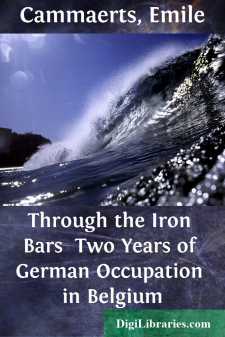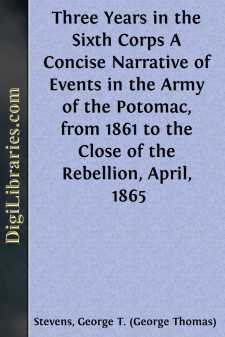History
- Africa 30
- Americas (North Central South West Indies) 50
- Ancient 68
- Asia 58
- Australia & New Zealand 8
- Canada 41
- Caribbean & West Indies 1
- Civilization 20
- Eastern Europe 12
- Europe 310
- Expeditions & Discoveries 60
- General 77
- Historical Geography 1
- Jewish 9
- Latin America 3
- Medieval 8
- Middle East 13
- Military 248
- Revolutionary 8
- Study & Teaching 5
- United States 353
- Western Europe 56
- World 13
History Books
Sort by:
A WALK ROUND MELBOURNE. Although most educated people know that Melbourne, Sydney, and Adelaide are populous towns, I should doubt whether one Englishman, who has not been to Australia, out of a hundred realizes that fact. I well remember that, although I had taken some trouble to read up information about Melbourne, I was never more thoroughly surprised than during the first few hours after my arrival...
more...
I OFF TO THE FRONT "It is my Royal and Imperial Command that you concentrate your energies, for the immediate present upon one single purpose, and that is that you address all your skill and all the valor of my soldiers to exterminate first the treacherous English and walk over General French's contemptible little army." While this Imperial Command of the Kaiser was being written, Atkins,...
more...
by:
E. R. Billings
THE TOBACCO PLANT. Botanical Description — Ancient Plant-Bed — Description of the Leaves — Color of Leaves — Blossoms — The Capsules and Seed — Selection for Seed — Suckers — Nicotine Qualities — Medicinal Properties — Improvement in Plants. CHAPTER TOBACCO. ITS DISCOVERY. Early Use — Origin of its Name — Early Snuff-Taking — Tobacco in Mexico — Comparative Qualities of...
more...
"The Sovereign Remedy" Tobacco was probably first brought to the shores of England from Florida by Sir John Hawkins in 1565. Englishmen were growing it by the 1570's, and after the return of the daring Sir Francis Drake to England with a large quantity of tobacco captured in the West Indies in 1586, the use of tobacco in England was increased substantially. By 1604 its consumption had...
more...
by:
Emile Cammaerts
I.THE PRISON GATES.The English-speaking public is generally well informed concerning the part played in the war by the Belgian troops. The resistance of our small field army at Liège, before Antwerp, and on the Yser has been praised and is still being praised wherever the tale runs. This is easy enough to understand. The fact that those 100,000 men should have been able to hold so long in check the...
more...
by:
Unknown
PART I. Formation of the Squadron. It was on the 4th July 1917 that authority was given to the 7th Mounted Brigade (then at Ferry-Post, Ismailia), for the formation of a Machine-Gun Squadron to be known as the "20th." It was to consist of "Headquarters" and only three sub-sections, there being but two regiments (instead of the usual three) in the 7th Brigade. On July 4th, Lieut. E.P....
more...
by:
Edmund B. Tuttle
INTRODUCTION The interest which boys are taking in all that relates to our Indian tribes, and the greediness they manifest in devouring the sensational stories published so cheaply, filling their imaginations with stories of wild Indian life on the plains and borders, without regard to their truthfulness, cannot but be harmful; and therefore the writer, after three years' experience on the plains,...
more...
A NEW REGIMENT GOES TO THE WAR. Organization of the Seventy-seventh N. Y. V.—Departure from Saratoga—Greetings by the way—New emotions—The noble dead—On board the Knickerbocker—At New York—Presentation of flags—Beauties of monopoly—Hospitality of Philadelphia—Incidents on the route—Arrival at Washington—In camp. Our regiment was organized at Saratoga Springs, the historic scene...
more...
2d March 1863.—I left England in the royal mail steamer Atrato, and arrived at St Thomas on the 17th. 22d March.—Anchored at Havana at 6.15 a.m., where I fell in with my old friend, H.M.'s frigate Immortalité. Captain Hancock not only volunteered to take me as his guest to Matamoros, but also to take a Texan merchant, whose acquaintance I had made in the Atrato. This gentleman's name is...
more...
by:
Thomas Mitchell
PREFACE TO THE FIRST EDITION. The following Journals were written at the close of many a laborious day, when the energies both of mind and body were almost exhausted by long-continued toil. The author trusts that this circumstance will account for, and palliate, some of the defects which may be discovered in his volumes. Conscious as he is of the deficiencies of his work, he nevertheless hopes that the...
more...











